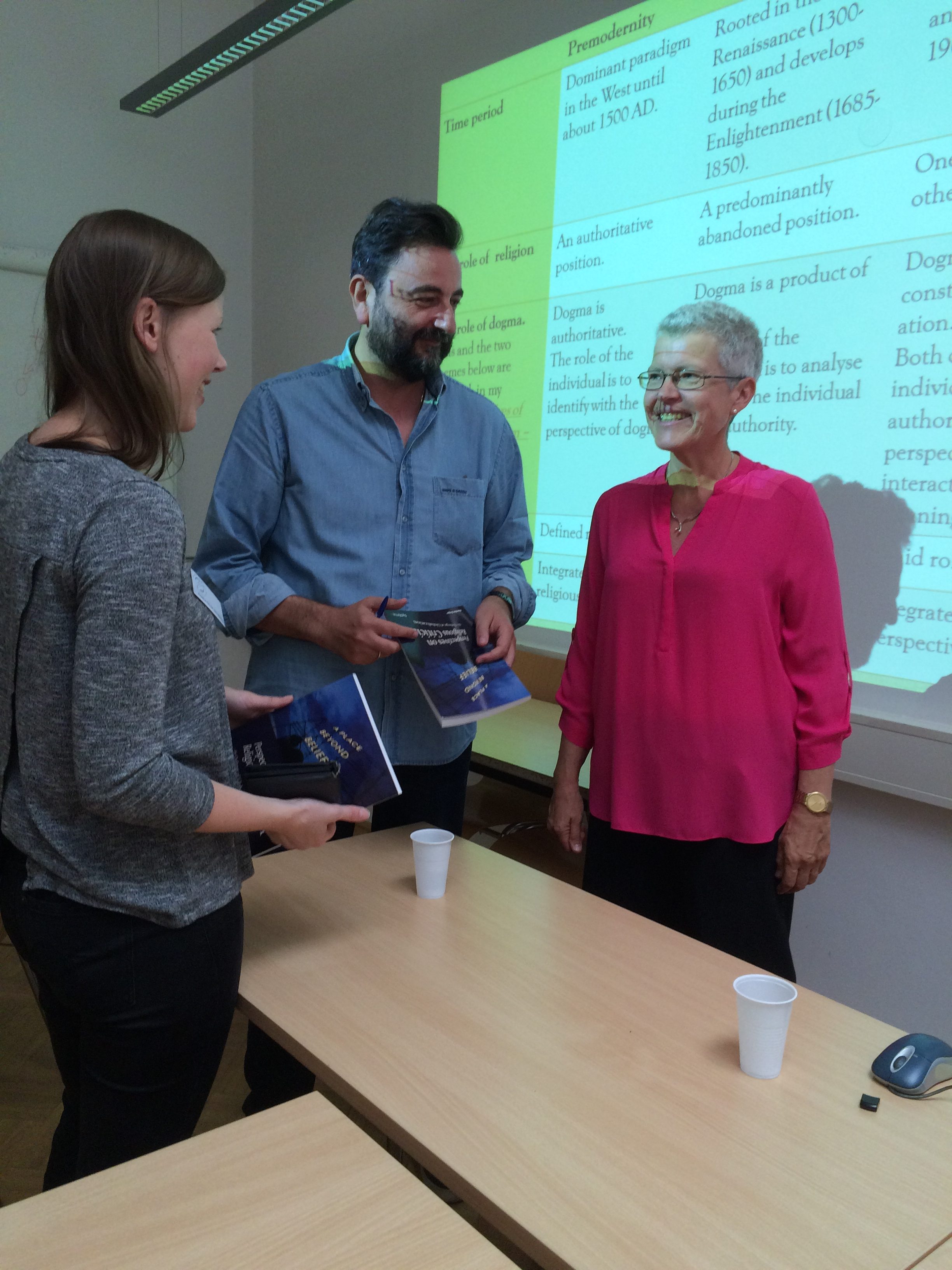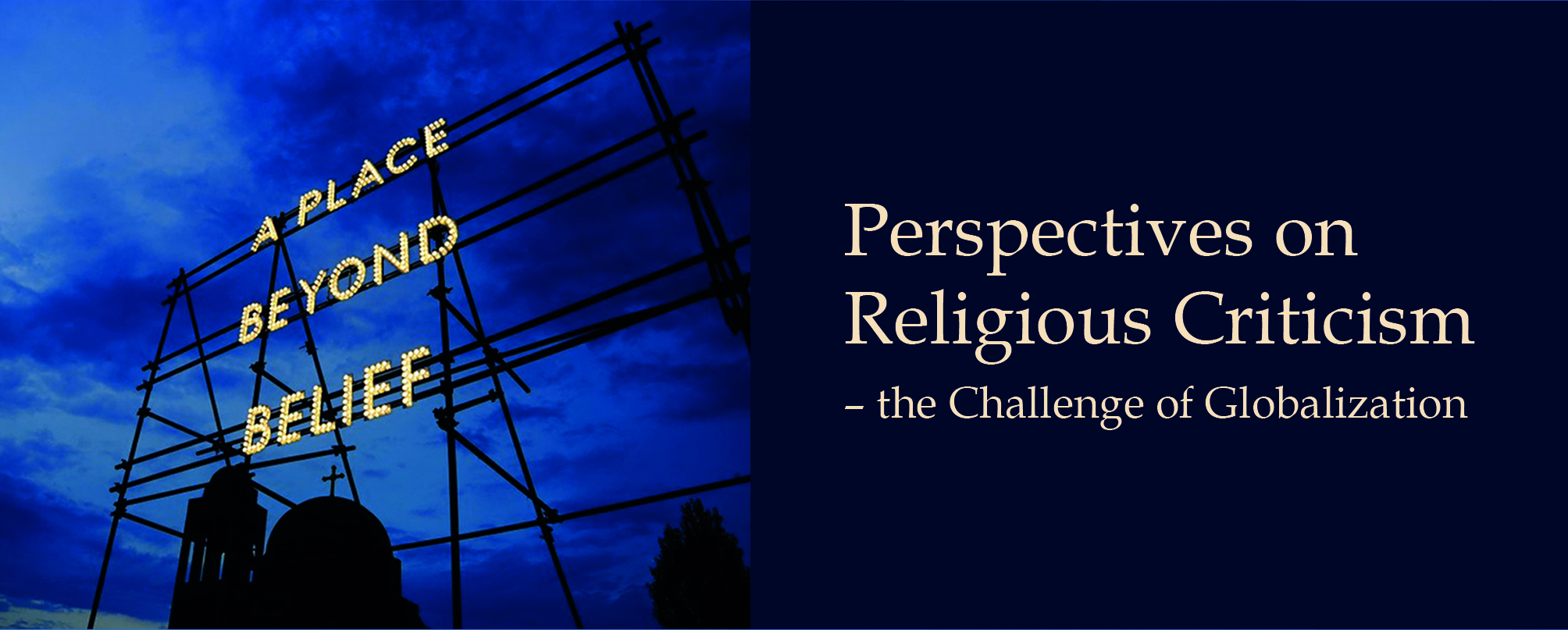Religious criticism is often associated with a negative external judgment of religious teachings based on “classic” atheist criticism (Marx and Nietzsche) and New Atheism (the “four horses of the Apocalypse” – Richard Dawkins, Sam Harris, Christopher Hitchens, Daniel Dennett).
This book offers a different approach. Criticism is used in the original Greek meaning of the word: discernment. To discern rather than to judge is a broad and inclusive way of approaching religious criticism, which meets the needs of a global and digitalized world of many conflicting worldviews. The idea behind Perspectives of Religious Criticism- the Challenge of Globalization is that this kind of religious criticism is a constructive way of developing worldview literacy.
Worldview literacy is a crucial skill for navigating in a world of conflicting positions. Becoming worldview literate means that the complexity of conflicting positions is embraced rather than rejected. Insight into worldviews creates the foundation for an empathic dialogue, which does not reduce differences in order to create fake harmony. An efficient and constructive global communicator is not barricaded within a particular worldview but open to the challenge of dialogue with other positions.
The book focuses on both internal and external religious criticism and contains three main topics:

- Religion and Dogma
- Religion and Gender
- Religion and Science
Perspectives of Religious Criticism- the Challenge of Globalization contains background information, a variety of texts and genres, templates and activities that encourage reader participation. In the iBook version there are videoclips featuring influential debaters like Richard Dawkins, Eckhart Rolle and Oprah Winfrey.
The book targets students in the final years of high school and can be used both in Religious Studies and in English Language and Literature as it contains a number of literary texts.
Perspectives of Religious Criticism- the Challenge of Globalization also appeals to any reader who is interested in an inclusive and dynamic approach to religious criticism.
Reviews
Allan Poulsen. Religion 2017 (Religion is a magazine for Danish teachers of religious education)
“This book is an obvious choice for cross curricular work in English and Religious studies.
“There is an abundance of good texts from widely different sources”.
“This is an exciting and innovative book.”
Ed Pawson. REtoday 2017. (REtoday is a magazine for teachers of religious education in the UK).
“…provides an innovative approach to religious criticism.”
“Perspectives on Religious Cristicism is a valuable source book “..”, exploring a diverse range of perspectives on religion and belief.”
“…it is communicating a powerful tool to help identify and characterise how different people understand religious truth in different ways.”
LeAnne Kline Christiansen. Adjunct Lecturer, Aalborg UniversityCEO, The South Gate Society School of Creative Writing
“By the end of this textbook, students have achieved a solid foundation into the study of religious criticism in terms of historical and textual roots of Christianity and Islam as well as contemporary viewpoints, beliefs, and controversies. Further, students have gained the ability to understand dissention and engage in discussion, using an informed and empathetic manner, in the ever-evolving and highly controversial discussion of religious criticism in a modern world.”
Isaac Willis Larison, Ph.D. Marshall University, USA
“Congratulations to Dorthe Enger for crafting a powerful examination of religious criticsm. Perspectives on Religious Criticism – the Challenge of Globalization is a superb work. She has pulled together challenging and disparate ideas into a concise study of religion and dogma, religion and gender, and religion and science. Ms. Enger presents excerpts from scientific, literary, and spiritual writings from the world’s great thinkers from all walks of life, time, and experience. She allows the reader to discover a nuanced and dynamic avenue forward through these evocative readings. Her subtle and straightforward discussions of practical and complex issues touch all our lives and relationships. This volume will be especially useful to those engaged in theological, social, and spiritual inquiry.”
Verner Worm. Professor at Copenhagen Business School
“This is an extremely insightful book for ‘globalized’ people who travel around in a world where religious discernment and understanding become more and more important both in the West and the East. The book has an emphasis on Christianity and also Islam, but without ignoring other religions and worldviews. Without understanding religion, including atheism, one cannot begin to understand the cultural profiles in the world today. This book should be read by students and others who travel internationally professionally. A special recommendation goes to non-European students all over the world. It is an extremely well written and easy accessible book on an important topic, covering premodern, modern, and post-modern worldviews and with pedagogical questions in each chapter. Read it!”
International focus on Dorthe Enger’s approach to religious criticism
Religious criticism as a way of developing worldview literacy has sparked international interest, and Dorthe Enger has written two articles, which have been published in the UK and the US.
- “Postmodern Religious Criticism and Worldview Literacy.” REtoday. Summer 2017, Volume 34, Number 3.
- “Redefining Religious Criticism for Development of Worldview Literacy in Religious Education”. Handbook of the Changing World Language Map. Ed. Prof. Stanley D. Brunn, Prof. Roland Kehrein. Springer International Publishing 2019.
The book is available at Amazon as well as at the Danish publishing firm Systime in a printed as well as an online edition.

